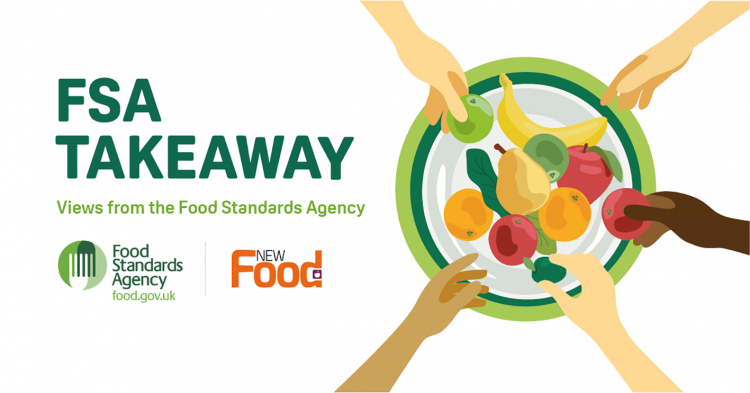Food we can trust – making it happen
- Like
- Digg
- Del
- Tumblr
- VKontakte
- Buffer
- Love This
- Odnoklassniki
- Meneame
- Blogger
- Amazon
- Yahoo Mail
- Gmail
- AOL
- Newsvine
- HackerNews
- Evernote
- MySpace
- Mail.ru
- Viadeo
- Line
- Comments
- Yummly
- SMS
- Viber
- Telegram
- Subscribe
- Skype
- Facebook Messenger
- Kakao
- LiveJournal
- Yammer
- Edgar
- Fintel
- Mix
- Instapaper
- Copy Link
Posted: 12 August 2020 | Emily Miles | No comments yet
The Food Standards Agency (FSA) Chief Executive, Emily Miles, discusses the importance of trust and collaboration in the first of a new regular column.


This first part of a two-part discussion; here I will be discussing the importance of trust in the creation of a food system that works for everyone.
Consumer interest
Consumer interest is best served when consumers have food they can trust. The BSE (mad cow’s disease) crisis, that led to the birth of the FSA, showed us that. It is estimated to have cost the nation billions of pounds and also ruined the UK’s ability to export beef abroad for many years. Governments and the private sector ignore the consumer’s trust in food at their peril.
To safeguard food we can trust, Government needs to act with impatience, boldness and ambition. Over its 20-year history, the FSA has learnt a lot about maintaining and improving trust. We are in the top quartile of most trusted Government organisations.
How the FSA gained trust
Our decisions are not made for political or economic gain, but for the consumer interest. We are consistently honest about food, we obsess about science and evidence, and we are up front about what we know and do not know, communicating a degree of honest uncertainty if necessary.


The BSE (mad cow’s disease) crisis, which led to the birth of the FSA, provided a valuable lesson on trust
We have a commitment to openness and transparency. We ensure that evidence can be debated in public, which is why the FSA’s board meetings are live-streamed and all papers are made available two weeks in advance.
We listen so that work is informed by what is, not what we imagine to be. Listening can take many forms. Social media listening, algorithms, focus groups, correspondence, surveys. We want to listen even more carefully to different audiences, both business and consumer.
In sum, truth, openness and responsiveness generate trust in the FSA.
How the FSA operates
So where does trust feature in the FSA’s relationship with industry? I object to an ideological distrust of the private sector. It is wrong to assume that the food industry is packed with bad actors and that regulators are only there to rein in their worst excesses. To assume that the food industry is stuffed with exploitative corner-cutting businesses is lazy thinking. The great majority of retailers work hard to ensure food is safe and is what it says it is. We know this by the constructive way they work with us across the piece and particularly on product recalls and withdrawals.
The regulator needs to reward and collaborate with the good actors but reserve its right to be suspicious of potential bad actors. A regulator that chooses trust over suspicion, or suspicion over trust, is not fulfilling its responsibilities. The FSA must do both.


It therefore falls to us to make it as easy as possible for business to do the right thing. The FSA needs to do a number of things here. Our standards and guidance should make sense and be easy to follow. The approach to proving compliance should be simple and make sense with third-party systems. Our data should also be easy to pick up and insert into others’ platforms. We need to create the right fundamentals to facilitate the sharing of best practice and key data. Finally, we should give sufficient notice about changes to rules. In short, we must design in compliance.
If we can deliver this, then we can ensure that trust is at the heart of the regulatory system. We can develop trust between Government and the food industry and, ultimately, strengthen consumers’ trust in food.
About the author
Emily Miles is the Chief Executive Officer of the FSA. She took up the role on 23 September 2019 after moving from Defra. Emily has worked largely on home affairs issues at the Home Office, Downing Street and Cabinet Office. She was political advisor of home affairs to former Prime Minister Tony Blair between 2002-2005. She holds a Masters in the international law of armed conflict and international criminal justice from the University of Nottingham, and her first degree was from the University of Cambridge in English.
Related topics
COVID-19, Food Fraud, Food Safety, Recruitment & workforce, Regulation & Legislation, Supply chain, The consumer, Trade & Economy







